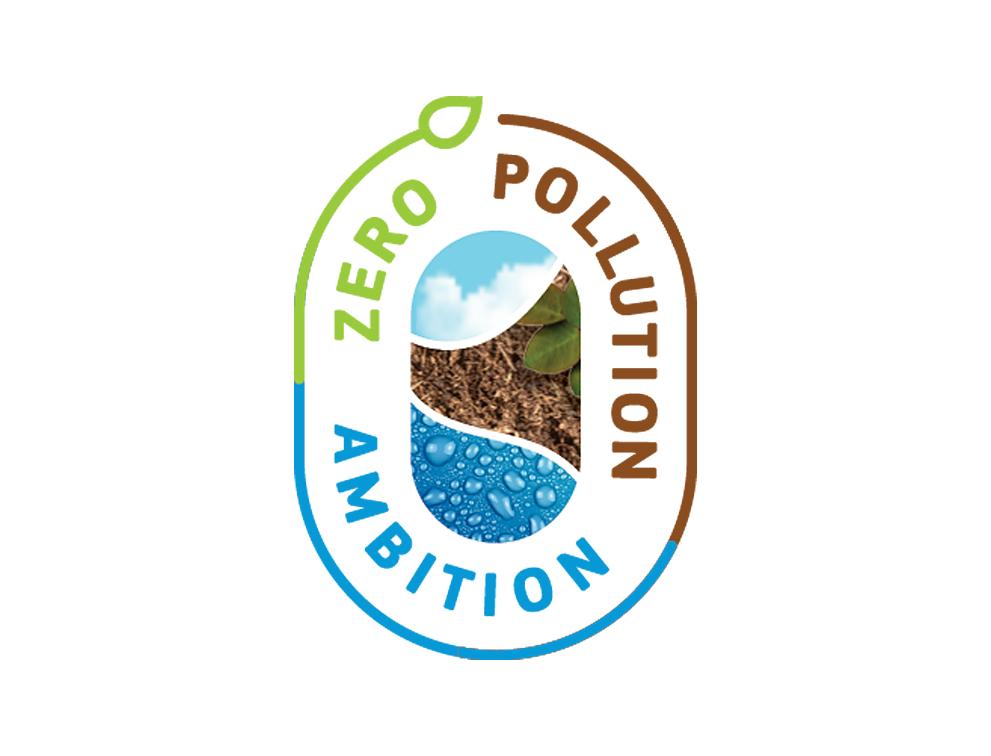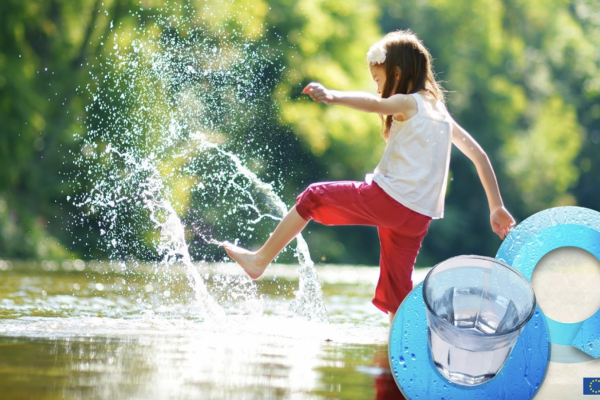Pollution harms our health and our environment. It is the largest environmental cause of multiple mental and physical diseases and of premature deaths, especially among children, people with certain medical conditions and the elderly.
In addition to affecting people’s health, pollution is one of the main reasons for the loss of biodiversity. It reduces the ability of ecosystems to provide services such as carbon sequestration and decontamination.
The public health, environmental, moral and socio-economic case for the EU to lead the global fight against pollution is today stronger than ever.
On 12 May 2021, the European Commission adopted the EU Action Plan: "Towards a Zero Pollution for Air, Water and Soil" (and annexes) - a key deliverable of the European Green Deal. You can get more information and get involved in the implementation of the Action Plan through the Zero Pollution Stakeholder Platform.

Objectives
The zero pollution vision for 2050 is for air, water and soil pollution to be reduced to levels no longer considered harmful to health and natural ecosystems, that respect the boundaries with which our planet can cope, thereby creating a toxic-free environment.
This is translated into key 2030 targets to speed up reducing pollution at source. These targets include:
- improving air quality to reduce the number of premature deaths caused by air pollution by 55%;
- improving water quality by reducing waste, plastic litter at sea (by 50%) and microplastics released into the environment (by 30%);
- improving soil quality by reducing nutrient losses and chemical pesticides’ use by 50%;
- reducing by 25% the EU ecosystems where air pollution threatens biodiversity;
- reducing the share of people chronically disturbed by transport noise by 30%, and
- significantly reducing waste generation and by 50% residual municipal waste.
The Action Plan aims to strengthen the EU green, digital and economic leadership, whilst creating a healthier, socially fairer Europe and planet. It provides a compass to mainstream pollution prevention in all relevant EU policies, to step up implementation of the relevant EU legislation and to identify possible gaps.
Actions
The European Green Deal announced headline actions on zero pollution.
- Chemical strategy for sustainability - to better protect citizens and the environment against hazardous chemicals.
- Zero Pollution Action Plan for water, air and soil - to better prevent, remedy, monitor and report on pollution.
- Revising measures to address pollution from large industrial installations - to ensure they are consistent with climate, energy and circular economy policies.
You can track the progress of the individual flagships and actions announced in the Zero Pollution Action Plan:
The Zero Pollution Monitoring and Outlook, published on 8 December 2022, offers a snapshot of the current state of the pollution in the EU, and answers questions on the pollution trends over the past years, and whether we are likely to achieve 2030 zero pollution targets.
- 24 and 25 January 2024Zero Pollution stakeholder workshop: ‘Zero Pollution Monitoring and Outlook’
- September- October 2023Adoption of several initiatives on microplastics
- REACH restriction addressing intentionally added microplastics
- Proposal for a Regulation on preventing pellet losses to reduce microplastics pollution
- Brochure on EU action against microplastic pollution
- 14 July 2023Proposal to ban all remaining intentional uses of mercury in the EU
Proposal, Delegated act and News
- 26 October 2022The Commission proposed stronger rules on ambient air, surface and groundwater pollutants, and treating urban wastewater
Find out more about the proposals:
- Revision of the Ambient Air Quality Directives
- Revision of the Urban Waste Water Treatment Directive
- Updated lists of water pollutants to be controlled in surface waters and groundwater
Find out more in the press materials.
- 24 and 25 May 2022Stakeholder workshop ‘Towards a Zero Pollution Monitoring and Outlook’
- 16 December 2021First meeting of the Zero Pollution Stakeholder Platform
- 7 October 2021Launch of the call for expression of interest for the Zero Pollution Stakeholder Platform
See the call
- 4 June 2021Launch of the Zero Pollution Stakeholder Platform
- 31 May - 4 June 2021EU Green Week 2021 on the theme of zero pollution
- 12 May 2021Commission adoption of zero pollution action plan
- 10 February 2021Stakeholder workshop on the zero pollution action plan
- 11 November 2020Launch of zero pollution action plan public consultation
- 14 October 2020Presentation of chemicals strategy
- 1 October 2020Presentation of zero pollution action plan roadmap
- 11 December 2019Presentation of the European Green Deal
Policy areas
- Air : EU action to improve air quality and reduce air pollution.
- Chemicals : EU action to ensure chemicals are safe, for health and the environment.
- Circular economy: The EU’s transition to a circular economy with a focus on green growth.
- Industrial emissions : EU action to make industry more sustainable and reduce industrial emissions.
- Marine and coastal environment : EU action to protect Europe’s coasts, seas and oceans.
- Nature and biodiversity: EU action on environmental conservation and protection.
- Noise : EU action to reduce environmental noise pollution.
- Plastics : EU action on plastic production and pollution to contribute to a circular economy.
- Soil and land : EU action for the sustainable use of soil and land.
- Water : EU action on water issues, to protect water resources.
Documents
- Communication on EU Action Plan: ‘Towards Zero Pollution for Air, Water and Soil’ and annexes
- Staff working document: Digital Solutions for Zero Pollution
- Staff working document: Towards a monitoring and outlook framework for the zero pollution ambition
- Factsheet on the Zero Pollution Action Plan: ‘2050: a healthy planet for all”
- Full synopsis report - results of the public consultation on the Zero Pollution Action Plan
- Factual summary report of the results of the public consultation
- Roadmap - Zero Pollution Action Plan
- Factsheet - eliminating pollution
- EEA Signals 2020 - Towards zero pollution in Europe
- EEA Report - 'Healthy environment, healthy lives: how the environment influences health and well-being in Europe’
- Report - Horizon projects supporting the Zero Pollution Action Plan


